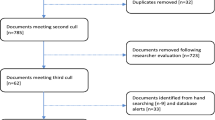Abstract
Community engagement as a public mission of higher education is widely accepted in South Africa. This is articulated in White Paper 3 on the transformation of higher education and in institutional policies that promote different forms of community engagement. However, compared to the traditional roles of teaching and research, community engagement remains contested. It is most often viewed as voluntary and perhaps even peripheral. Given the serious social disparities in South Africa, community engagement needs to be invigorated and placed on par with the teaching and researching roles of universities. Furthermore, it should not only involve collaborative knowledge production, but should combine epistemological and ontological dimensions and involve holistic human development capable of dealing with social disparities A combined epistemological-ontological conception of community engagement is developed in this study and interventions are proposed at three levels. First, university induction programs, which tend to prioritize the teaching and researching roles of faculty members, should consider community engagement as equally important. Second, just as the teaching and researching roles tend to be well planned and/or incentivized, so too should community engagement. Third, community engagement should adopt a mode 2 knowledge production lens where community members reflexively produce knowledge together with faculty members and contribute to holistic human development. Finally, strategies are suggested to embed an epistemological-ontological conception of community engagement.
Similar content being viewed by others
References
CHE. (2010). Higher education monitor: Access and throughput in South African higher education: Three case studies. Pretoria: CHE.
CHE. (2013). A proposal for undergradaute curriculum reform in South Africa: The case for a flexible curriculum structure. Pretoria: CHE.
Coetzee, E. (2013). Community engagement by higher education institutions – a practical model and guidelines. Africa Education Review, 9(3), 501–517.
Creswell, J. (2012). Education research: Planning, conducting and evaluating quanititative and qualitative research. Boston: Pearson.
Dall'Alba, G., & Barnacle, R. (2007). An ontological turn for higher education. Studies in Higher Education, 32(6), 679–691.
Department of Education. (2001). National plan for higher education. Pretoria: DOE.
Department of Higher Education and Training. (1997). White paper 3: A program for the transformation of higher education. Pretoria: DHET.
Department of Higher Education and Training. (2013). White paper for post-school education and training: Building an expanded, effective and integrated post-school system. Pretoria: DHET.
Driscol, A. (2008). Carnegie's community-engagement classiification: Intentions and insights. Change: The Magazine of Higher Leanring, 40(1), 38–41.
Gibbons, M., Limoges, C., Nowotny, H., Schwartzman, S., Scott, P., & Trow, M. (1994). The new production of knowledge: The dynamics of science and research in contemporary socities. London: Sage publications.
Gilson, L. L., & Goldberg, C. B. (2015). Editor's comment: so what is a conceptual paper? Group & Organization Management, 40(2), 127–130.
Habermas, J. (1987). The theory of communicative action: Lifeworld and system: A critique of functionalist reason. Boston: Beacon.
Hall, M. (2010). Community engagement in South African higher education. In CHE (Ed.), Kagisano NO. 6: Community engagement in South African higher education (pp. 1–52). Pretoria: CHE.
HEQC. (2004). Criteria for Institutional Audits. Pretoria: Council on Higher Education.
How, A. (2003). Critical theory. New York: Palgrave Macmillan.
Lynch, K. (2006). Neo-liberalism and marketisation: the implications for higher education. European Educational Research Journal, 5(1), 1–17.
MacLean, D., MacIntosh, R., & Grant, S. (2002). Mode 2 management research. British Journal of Management, 13, 189–207.
Mogalakwe, M. (2009). The documentary research method–using documentary sources in social research. Eastern Africa Social Science Research Review, 25(1), 43–58.
Nkoana, E., & Dichaba, M. (2017). Development and application of conceptual and analytical frameworks for commuity engagement at a South African university. South African Journal of Higher Education, 31(6), 177–196.
Nongxa, L. (2010). An (engaged) response to Hall's paper: Community engagement in South African higher education. In CHE (Ed.), Community engagement in South African higher education (pp. 53–67). Pretoria: CHE.
Nussbaum, M. (1997). Cultivating humanity: A classical defense of reform in liberal education. Cambridge: Harvard University Press.
Peters, M. (2012). Neoliberalism, education and the crisis of Western capitalism. Policy Futures in Education, 10(12), 134–141.
Schön, D. (1983). The reflective practitioner: How professionals think in action. New York: Basic Books.
Schön, D. (1987). Educating the reflective practitioner: Toward a new design for teaching and learning in the professions. San Francisco: Jossey-Bass.
Seekings, J., & Nattrass, N. (2006). Class, race, and inequality in South Africa. Scottsville: University of KwaZulu-Natal Press.
UCT. (2016). Distinguishing UCT: The University of Cape Town's strategic planning framework 2016–2020. Cape Town: UCT.
University of Johannesburg. (n.d.). Strategic plan 2025: Tracking progress towards achieving. Johannesburg: University of Jahannesburg.
University of KwaZulu Natal. (2017). Strategic Plan 2017–2021. Durban: University of KwaZulu Natal.
Waghid, Y. (2003). Democratic education: Policy and praxis. Stellenbosch: Department of Education Policy Studies.
Winter, A., Wiseman, J., & Muirhead, B. (2006). University-community engagement: practice, policy and public good. Education, Citizenship and Social Justice, 1(3), 211–213.
Author information
Authors and Affiliations
Corresponding author
Additional information
Publisher’s note
Springer Nature remains neutral with regard to jurisdictional claims in published maps and institutional affiliations.
Rights and permissions
About this article
Cite this article
Shawa, L.B. The public mission of universities in South Africa: community engagement and the teaching and researching roles of faculty members. Tert Educ Manag 26, 105–116 (2020). https://doi.org/10.1007/s11233-019-09040-1
Received:
Accepted:
Published:
Issue Date:
DOI: https://doi.org/10.1007/s11233-019-09040-1



